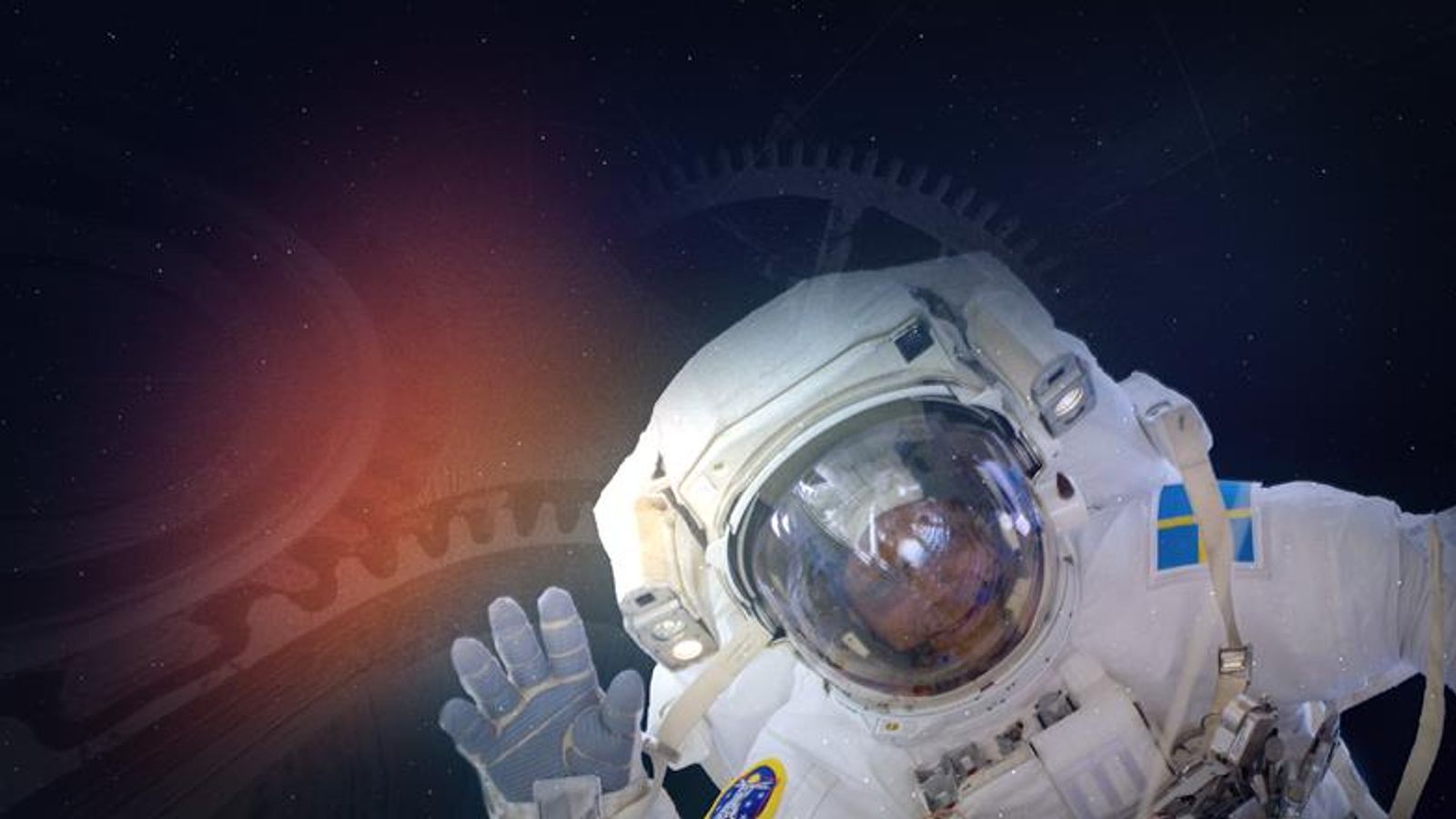There are hordes of time scientists trying to make sure space-time stays as accurate as possible.
They need to – we are more reliant on it than ever before.
Catching a train, using our phones, communication networks, the electricity grid, banking, logistics… everything relies on time signals sent from space.
But the time systems we are so reliant on are vulnerable.
Forget Doctor Who, the real Time Lords work in Teddington
Forget Doctor Who, the real Time Lords work in Teddington
A pilot flying Ursula von der Leyen, president of the European Commission, recently landed using paper maps after the plane’s GPS system was jammed.
In October, scientists said they had spotted a satellite over the Baltic Sea that was sporadically and “powerfully” knocking out time signals from space and had been for around a decade.
Earlier this year, Sky News reported that around 1,500 flights a day are now having their GPS disrupted.
Headlines like that are why scientists around the world are trying to develop alternatives.
“The problem is that because [GPS] is so easy and because it is so good, people don’t really think about what happens if it’s not there,” said Dr Harry Pointon, an expert in precision time and navigation, to Sky News.
“My job is to go, ‘yeah, [global navigation satellite systems] are absolutely great, but if they fall over, you need to try and think about other options’,” said Dr Pointon.
“It’s not about replacing GNSS. It’s about complementing it.”
Inside a time laboratory at NPL
Inside a time laboratory at NPL
At the National Physical Laboratory (NPL) in Teddington, west London, a team is trying to bypass space entirely.
Rather than making sure space clocks are keeping time accurately, NPL’s metrologists are going to try and communicate time directly to the world through the sprawling network of fibre cables we use to send data.
Scientists at NPL are working on a clock so accurate it would lose barely a second in the lifetime of the universe
“[We are] providing an alternative to GNSS by short-circuiting the space segment and delivering direct,” said Dr Leon Lobo, head of the NPL’s National Timing Centre, to Sky News.
“GNSS systems […] are actually dissemination methods for time, distribution methods, they get their time from equivalent labs like NPL. So it’s really about starting to create new accessible signals for users so that they’re not relying on just one source.”
There are also efforts to make time more accurate in general.
Dr Leon Lobo from the National Physical Laboratory
Dr Leon Lobo from the National Physical Laboratory
NPL is developing a clock so accurate that it would lose barely a second in the lifetime of the universe.
“No one is asking for slower internet or less bandwidth on their phones,” said Dr Lobo.
“Everyone’s looking for more bandwidth, faster speeds, lower latencies, and all of that requires better and better time.”
An atomic clock at the National Physical Laboratory
An atomic clock at the National Physical Laboratory
On the International Space Station, there’s a cold atom clock being tested by the European Space Agency; it uses lasers to freeze the atoms, measuring time so they are less jiggly – and therefore even more accurate.
And Porton Down, a top-secret defence lab, is developing the UK’s first quantum clock.
It should reduce the UK’s reliance on space-time and should be in operation in the next five years.
So the next time you are running late, try not to stress – if you were in space, it could be much, much worse.
